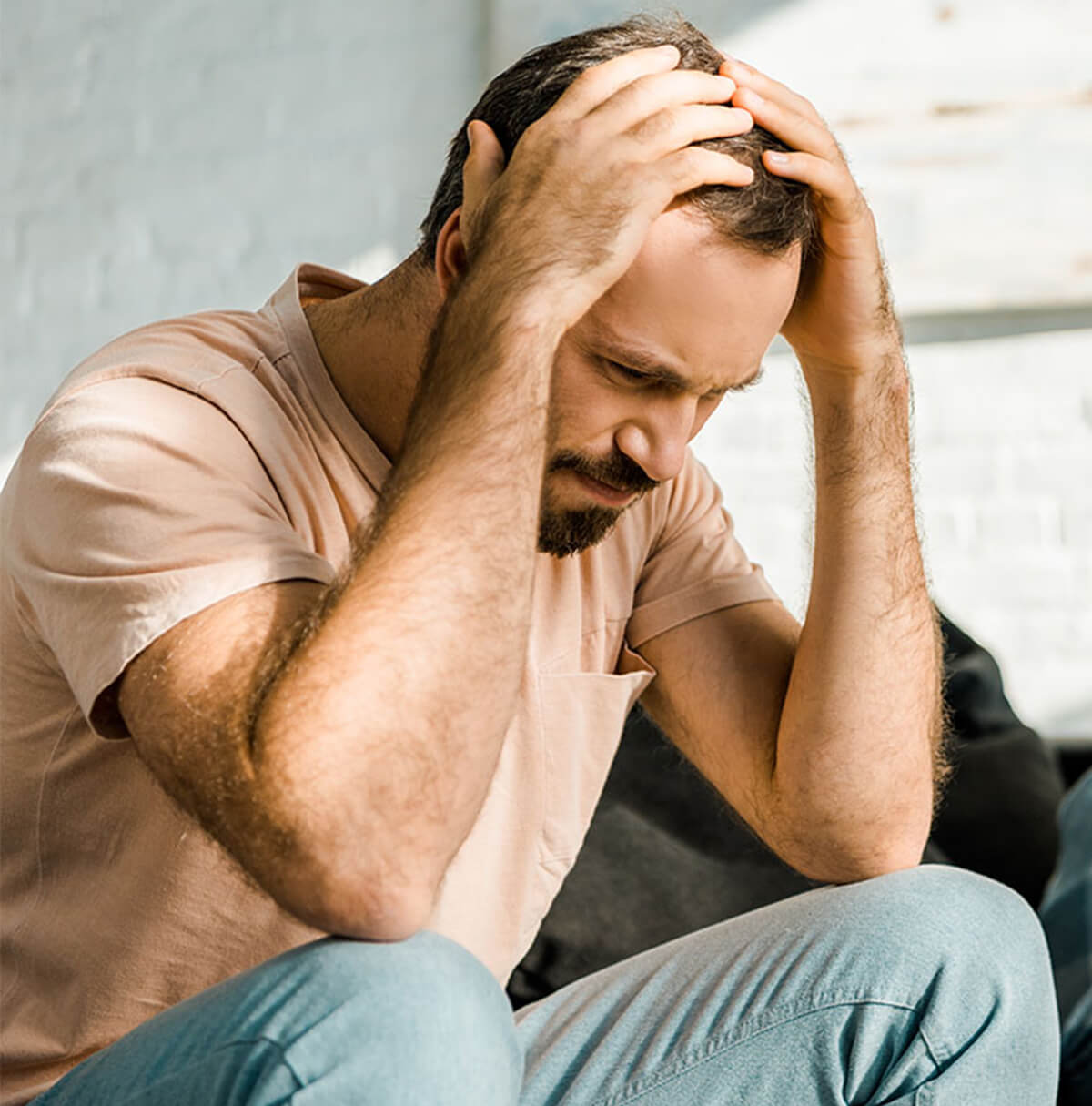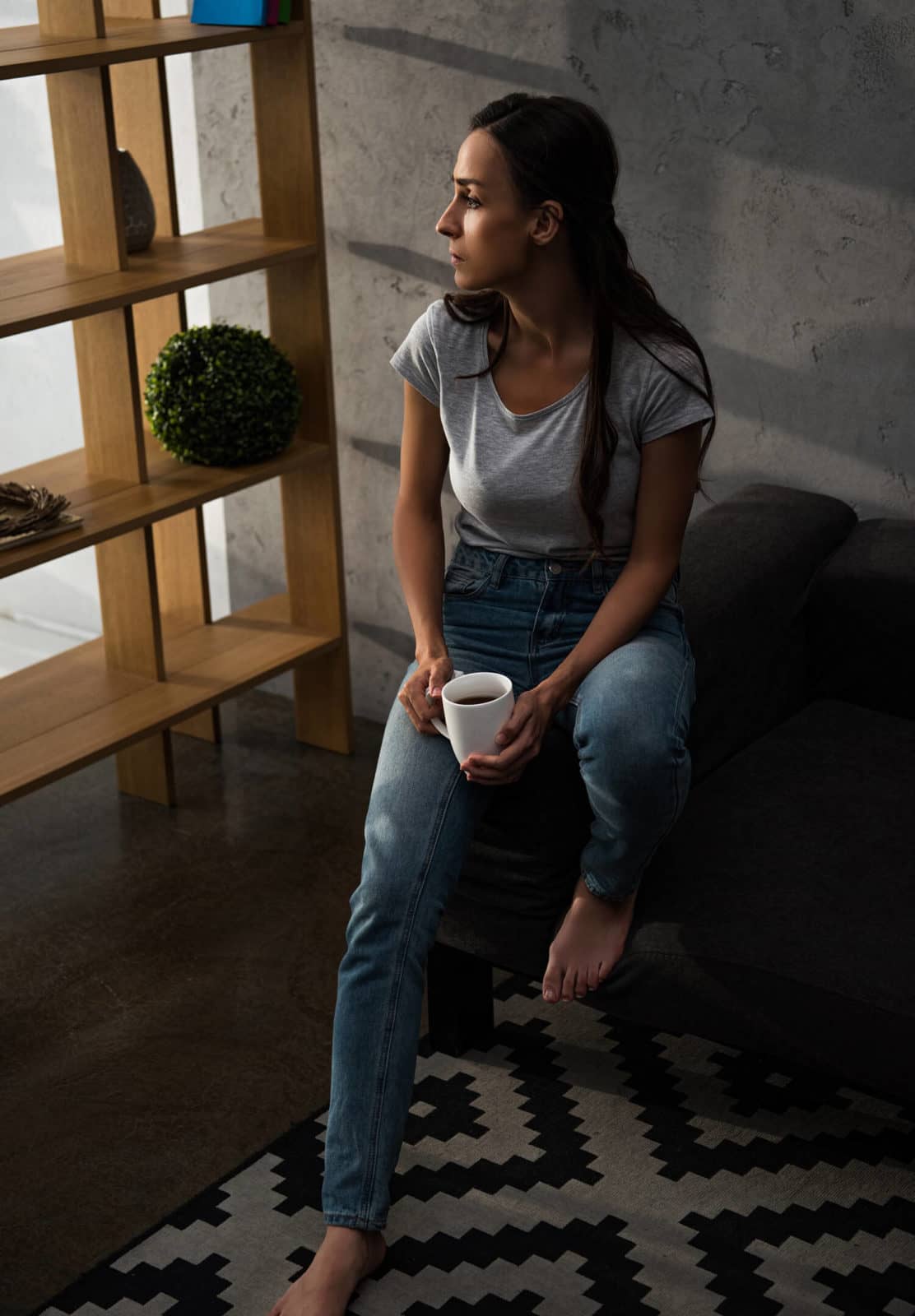Benzodiazepine Addiction Treatment
and Recovery in Milwaukee
Overview:
Milwaukee Benzodiazepine Abuse & Addiction Recovery
With 40 million Americans currently struggling with an anxiety disorder, it’s not surprising that benzodiazepines — a class of drug used for short-term anxiety management, among other conditions — are one of the most widely prescribed medications in the United States.[1] However, since “benzos” are highly addictive, benzodiazepine abuse has been increasingly common.
If you’re battling benzodiazepine addiction, you don’t have to fight alone. At Roots Recovery, we have the tools you or your loved one need to overcome benzodiazepine abuse. The first step is to truly understand what you’re up against. Read on to learn more about benzodiazepines, the signs and symptoms of benzo addiction and withdrawal, and how our Milwaukee substance abuse recovery programs can help you reclaim your life.

What Are Benzodiazepines?
Benzodiazepines are a class of prescription tranquilizers, also called sedatives or anxiolytics. They act as a depressant for the nervous system, lowering heart rate, blood pressure, core body temperature, and respiration. This produces a sedative effect and muscle relaxation, while also lowering anxiety levels. For this reason, benzodiazepines are often used to treat anxiety and panic disorder, insomnia, seizures, and to reduce muscular tension in preparation for surgical procedures.
Although many individuals who take benzodiazepines have a legitimate medical reason to do so, the highly addictive properties of benzodiazepines make them easy to abuse, especially when not used as directed by a medical professional. Overusing benzodiazepines can lead to a physical dependence, requiring more of the drug to feel the same effect.
Addiction to benzodiazepines is also called a sedative use disorder. There are thousands of varieties of benzodiazepines, but only fifteen of them are FDA-approved. Some of the most common benzodiazepines prescribed by doctors are diazepam (Valium), alprazolam (Xanax), lorazepam (Ativan), and clonazepam (Klonopin).
Benzos are most often taken orally but are sometimes inhaled through the nasal canals, an act known as “snorting” or “sniffing”.
Signs and Symptoms of Benzodiazepine Addiction
Since benzodiazepines are a legal and widely prescribed drug, it can be difficult to recognize the signs of addiction. A sedative use disorder can sometimes begin gradually, making the symptoms even harder to discern at first. If you or a loved one is experiencing these symptoms, it can indicate a sedative use disorder, and you should seek help as soon as possible.
Physical symptoms of sedative
use disorder include:
- Lightheadedness
- Weakness
- Blurred vision
- Drowsiness
- Mood changes
- Memory impairment
- Nausea and vomiting
- Slurred speech
Behavioral symptoms of sedative
use disorder include:
- “Doctor shopping” [2]
- Poor judgment
- Withdrawing from family, friends, and other obligations
- Engaging in risky activities
- Decreased hygiene and grooming
- Being secretive and lying
- Stealing from loved ones
- Changes in mood or personality
Confidential Insurance Verification
Complete the Form Below to Receive A Full Summary of Your Coverage

Effects of Benzodiazepine Abuse and Addiction
The long-term abuse of benzodiazepines can result in severe health problems, some of which the drug itself was initially prescribed to treat. Serious side effects of chronic benzodiazepine abuse include:
- Seizures
- Respiratory issues
- Anxiety
- Anorexia
- Depression
- Panic attacks
- Loss of coordination
- Insomnia
Since individuals will develop a tolerance to benzodiazepines over time, some will turn to alcohol in combination with benzos, because alcohol is also a depressant and has the same effect on the brain. Alcohol and benzodiazepines together can be an immensely dangerous duo when used together, as their co-consumption can lead to a serious — and potentially fatal — overdose.

Benzodiazepine Detox and Withdrawal
If a person who has been abusing benzodiazepines stops consuming the drug, withdrawal symptoms will occur. This is because benzos have kept the body in a depressed state, and their sudden disappearance will mean the body has to adjust. Symptoms of benzodiazepine withdrawal include:
- Panic attacks
- Heart palpitations
- Hand tremors
- Headache
- Hallucinations
- Vertigo
- Seizures
- Muscle spasms
The severity of these symptoms will depend on a variety of factors, such as how long one has been abusing benzodiazepines, how strong their dosage was, and whether or not they were taking other medications with it. The symptoms typically start within the first week after stopping benzodiazepines and can continue for several weeks or months afterwards.
Withdrawal can be uncomfortable at best, but deadly at worst, so it’s critical to seek guidance and support from experienced medical professionals when attempting to stop using benzodiazepines. Doing so alone is a major risk, but a team of addiction recovery specialists can help provide the tools and therapies to help you make it through withdrawal safely.
Reclaim The Life You Deserve
Take the First Step Towards Recovery Today
Benzodiazepine Addiction Rehab
in Milwaukee, WI
Benzo addiction can be tough to admit to yourself and to recognize in others, and it’s easy to feel isolated or that there’s no way out. At Roots Recovery, we’re here to tell you that you’re not alone in this, and that recovery is possible.
While we understand that treating the physical symptoms of benzodiazepine addiction is often a necessary first step — we know that substance abuse recovery is a process that also requires you to heal mentally, emotionally, and spiritually. That’s why when you come to us for help, we’ll help you uncover the root causes of your addiction, explore any co-occurring mental health disorders, such as anxiety or depression, and make sure that you have the tools you need to prevent relapse and live a healthy, fulfilling life in recovery.
If you or a loved one are struggling with benzodiazepine abuse, reach out to our addiction rehab center in Milwaukee by calling 844.447.6687 today.
